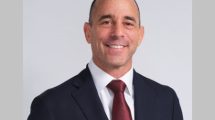 Space is a hostile environment that adds greater risk to an industry punctuated by complex technologies and mounting challenges.
Space is a hostile environment that adds greater risk to an industry punctuated by complex technologies and mounting challenges.
Copious amounts of effort have been spent to overcome many of the space industry’s obstacles, but while significant advances in performance and reliability have been achieved, space programmes remain relatively high risk.
Challenges seemingly rise in tandem with technological capabilities. While access to space in the past was restrained largely by cost and risk, the rise in the level of space activities today has led to there now being new matters of increasing concern, such as space debris and satellite interference.
Despite these difficulties being part of the space industry’s reality, the end users of satellite services are grounded in a very different landscape, one where constant connectivity and access to data is paramount, and service disruption is an inconceivable fate. In such a landscape, reliability is crucial.
But reliability can be affected by the changes taking place in the industry, explains Anne Aufrere, Head of Financing and Insurance Department at Arianespace.
“The space industry is in an era of change, and change is not only necessary, it’s vital. But reliability is also vital in our industry and it can be quite fragile as certain changes take place,” says Aufrere.
While necessary, explains Aufrere, change can create some instability and cause threats to the industry. Therefore, it’s important to track what is changing. On the financial side, satellite operators are still performing very well, they’re posting strong financial results and hold a positive outlook, she says.
“However, we are seeing some pressure to ease the prices in many markets, and not only in emerging markets. This downward pressure on pricing can affect the customers’ business plans and lead to satellite operators carefully reviewing their capital spending and developing new technological solutions to drive prices down,” adds Aufrere.
Changes in technology have been significant and satellites have certainly changed, says Brian Kosinski, Vice-President of Product Assurance and Reliability at Space Systems/Loral. While nobody can deny this period of significant change, SSL’s definition of reliability has not faltered, he says.
“The sizes of satellites have changed, complexity has radically changed, power has increased as well as their mass and the amount of technology carried on them. But by definition, reliability has not changed. When I get up in the morning and when I go to sleep at night, my entire focus for myself and the organisation is to have 100% mission success.
“You might ask if this is possible. In an insurance world, we know it’s not – the impossibility, after all, is why satellites are insured. But this is what we need to try achieve. It should be your vision and passion rolled into one, so that with every heartbeat every day, you’re focused on ensuring that the satellite is the best you’ve ever built,” says Kosinski.
How do you get a company to relentlessly strive for 100% success when all its employees know it’s not possible? By keeping your employees happy and motivated, says Kosinski, adding that sustainable success and reliability can’t be attained without this. While various levels of testing and qualification are fundamental, week employee morale can throw a spanner in the works, which puts costs and reliability at risk.
“It’s up to the leaders of the company to set an environment so the people know that what they’re doing is important. It’s up to these leaders to set an environment so that every day, when people come to work, they have the right materials and the right processes in place to work effectively,” says Kosinski.
Outlining some of the important keys to success, Kosinski notes that one of the rules, in a nutshell, is pay attention to detail because everything in this business matters.
“Another rule is that the early and robust qualification of systems and hardware is absolutely essential. This industry won’t survive if we don’t push the envelope of technology and innovate. But we have to do this in a controlled manner and we have to make sure that the systems and technology are qualified before you move into production.
“When it comes to increasing complexity, firstly, your design systems have to be robust. Secondly, your test programmes have to keep getting better. Like with a new car, or refrigerator for that matter, if a system is going to fail, it will generally happen in the first couple months of operation. One of the ways you can ensure that it won’t fail in the first couple months of operation is to have a robust test programme. It’s also an indication of the health of the system.
“There is cost and schedule pressure today. So it’s very important to be investing capital in new processes. We have to continue to evolve to become more efficient – it’s a fact of life for any industry. But in this industry, it’s always important to qualify not only equipment, but also new processes before you put them in line.
“You must pay significant attention to the premier plan. The schedule of a programme is, generally, made or not made in the first couple months of the programme. It’s staggering to me when people ask me if we can reduce the number of the cycles in a test phase, from eight to six, for example, as it will save a half a day of testing. This is not why the schedule is made. It’s made for the planning, managing the white phases and the handoffs. With these white phases and the handoffs between operations, really looking here is where you can save cost of schedule.
“Finally, another rule to success that everyone at SSL knows is that safety of people is more important than cost of schedule. That might sound like a motherhood statement, but it’s true. Because where do our costs come from? Where do our schedule problems come from? They come from when mistakes are made. So focus on making it right the first time, you’ll move through the factory more smoothly.
“People don’t wake up in the morning asking themselves: ‘how can I make a mistake today?’ But, if they go to work without feeling important, if they don’t feel valued or appreciated, then that’s when mistakes are made. It is these core keys that help make the company stronger; if we do these things, it will result in the best value not only to the company, but to our shareholders and customers as well.”
The perception of reliability
Reliability, however, has more than one side, says Aufrere.
“There are two sides: there are the facts and figures of reliability and then there is the customer perception of reliability. Therefore, the notion of reliability can be quite subjective,” she says.
“Each satellite operator has its own risk appetite and follows different approaches to calculating risk. But the common conclusion for all is that reliability takes years to build, seconds to break and years to repair.
“How is reliability being built and improved over the years? It has achieved its level today thanks to maturity of design. It also has a lot to do with experience and feedback, and dealing with failures, anomalies and many configurations.”
Considering examples of success, explains Aufrere, you can trace the advancement back to quality initiatives and new quality programmes. While quality investment has a cost, she says, it is one of the key players behind reliability in the industry.
While there will always be risk, the space industry together with the community of insurers continue to make great strides, countering and overcoming their associated challenges. The people helping to insure the satellites are as important as the satellites themselves, says SSL’s Kosinski.
“Satellites would not work and this industry would not work if there was not a community out there insuring these satellites,” he concludes.












Add Comment